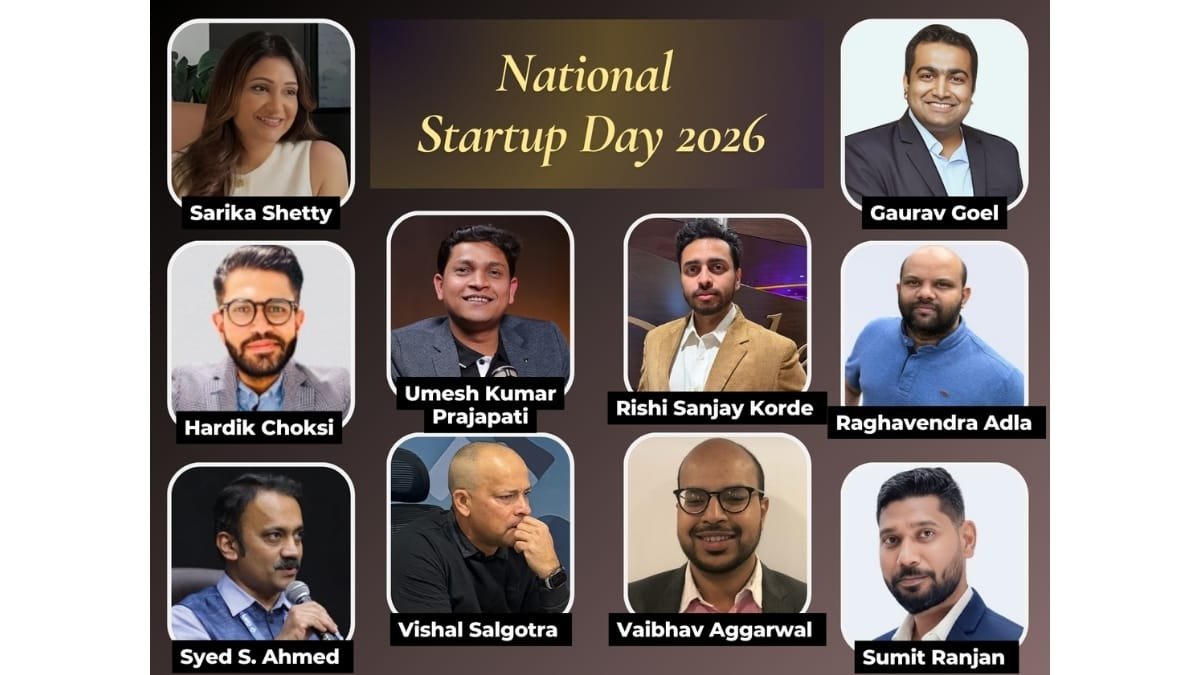New Delhi [India], November 25: In discussions about entrepreneurial versatility, the term “serial entrepreneur” is often applied broadly, sometimes too broadly. Many founders operate multiple ventures without necessarily demonstrating depth across industries. Terry Fisher represents a more substantive version of the phrase, someone who has built, turned around, scaled, and sold companies in sectors that usually require distinct forms of expertise. His career offers a practical case study for entrepreneurs seeking to understand how cross-sector excellence is actually developed and sustained.
Fisher’s path began in the travel industry, one of the UK’s most competitive consumer markets. At 19, he founded Travelworld, a single retail shop that he scaled into a network of 132 outlets across the country. This expansion was unusual not merely because of the scale, but because it took place during an era when structural challenges in the sector, rising competition, shifting consumer expectations, and increased pressure on margins made expansion particularly difficult. The company’s eventual sale became Fisher’s first major exit and introduced him to the complexities of operating within large, established organisations.
Early Lessons in Operational Precision
After Travelworld, Fisher was appointed to senior leadership roles inside some of the UK’s most recognised travel businesses. These roles exposed him to the operational realities of large organisations, bureaucracy, layered decision-making, and legacy processes. His ability to navigate and correct these inefficiencies became one of his most defining skills.
At Going Places, Fisher delivered a rapid turnaround, restoring profitability and generating £25 million in annual profit after a period of prolonged financial decline. His tenure at Gold Medal Travel Group produced a similarly notable outcome: he led the company to £9 million profit. He positioned it for a sale that closed at £86.5 million, significantly above initial valuations.
Industry observers attribute these results to Fisher’s direct leadership style, which is anchored in two principles he frequently references:
- “Know your exit — and build the business around it.”
- “Change the people, or change the people.”
These ideas underpin Fisher’s approach to structuring organisations. The first emphasises clarity, designing a business with the endpoint in mind, while the second reinforces accountability, ensuring teams are composed of those capable of delivering at pace.
A Defining Moment at Thomas Cook
Fisher’s appointment to the board of Thomas Cook, a company he had once declared he would run at age 19, placed him at the centre of one of the most scrutinised corporate chapters in UK travel. The company faced mounting pressures: structural debt, declining market share, and a failure to modernise rapidly enough.
Fisher proposed a strategic restructuring plan aimed at long-term stability. The board rejected the proposals. In response, Fisher made a decisive move: he resigned and attempted to acquire the business independently. Within 45 minutes, he secured commitments for £500 million. The acquisition did not proceed, but the moment became symbolic of his conviction-driven leadership. When Thomas Cook collapsed 18 months later, analysts revisited Fisher’s proposals as a potential turning point the company did not take.
Crossing Into New Sectors
After stepping away from corporate travel, Fisher entered a broader entrepreneurial phase that took him across industries and continents. His ventures included publishing in Marbella, hospitality investments, spirits, property development in Leeds, and advisory roles across the UK, Europe, and the United States. What stood out was the consistency of his operational approach across industries.
One of Fisher’s most significant non-travel successes came from an unexpected sector: technology. His investment in Voisey, a music collaboration app, demonstrated his adaptability and his ability to recognise talent and potential outside his traditional domain. Voisey’s growth accelerated during the pandemic as musicians and creators sought digital tools for collaboration. Less than two years after Fisher’s involvement, the platform was acquired by Snap Inc. for more than $100 million, producing multi-million-pound returns for the founders and a 60x return for Fisher.
This exit strengthened his profile within the technology sector, positioning him as a traditional operator who successfully bridged into an industry often dominated by younger, digitally native founders.
A Global Portfolio With a Strategic Core
Today, Fisher’s portfolio is international and diverse, reflecting his comfort operating across unrelated categories. His investments include:
- early-stage technology companies
- energy storage ventures
- spirits brands
- healthcare operations
- hospitality and property interests
Yet the through-line connecting these sectors is Fisher’s approach to value creation: identify inefficiency, impose clarity, empower the right teams, and design operations with the exit already defined.
These principles have become central to the way younger founders and investors view Fisher’s cross-sector achievements. Rather than relying on deep industry knowledge, he applies structural thinking and operational discipline, allowing him to enter markets others may consider too unfamiliar.
A Significant But Less Publicised Chapter in Football
A lesser-known part of Fisher’s leadership journey took place in professional football, where he became the youngest owner and chairman in the Football League at just 29 years old. Leading Huddersfield Town through a period of dramatic change, Fisher oversaw:
- the club’s promotion
- The development of a new modern stadium
- a rise in weekly attendance from 4,000 to more than 16,000
This period is widely viewed as one of the most transformative in the club’s contemporary history. While Fisher’s business principles shaped his corporate outcomes, he does not apply them to the football environment, a distinction he emphasises. His decisions in the sporting world were driven by community objectives, long-term infrastructure, and institutional sustainability rather than exit structures.
Today, Fisher continues his involvement in football through Sunday Ventures, advising and supporting projects linked to teams in Italy, Brazil, and California. His presence in the sector underscores the breadth of his operational experience, demonstrating that leadership principles rooted in clarity and execution can translate even into the complexities of global sport, when adapted appropriately.
A Blueprint for Modern Entrepreneurs
In an ecosystem that often rewards rapid scaling and short-term visibility, Fisher’s cross-sector career offers a counter-narrative. His success reflects not speed for its own sake, but structural discipline, long-term planning, and a willingness to make difficult decisions early.
Entrepreneurs studying Fisher’s career find lessons that extend beyond industry-specific knowledge:
- Understand the value drivers early
- Build with the endpoint in mind
- Empower teams capable of delivering under pressure
- Act decisively when markets shift
For founders seeking longevity rather than fleeting momentum, Fisher’s journey demonstrates that true versatility is engineered, not improvised.
If you have any objection to this press release content, kindly contact pr.error.rectification@gmail.com to notify us. We will respond and rectify the situation in the next 24 hours.




